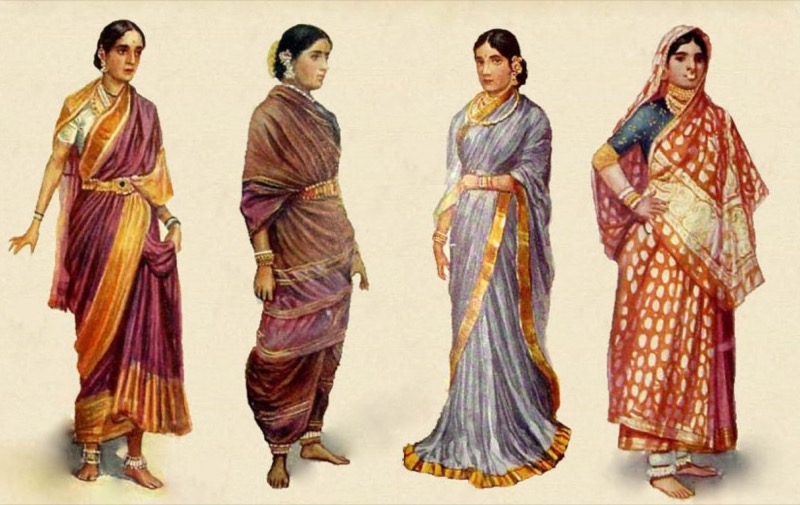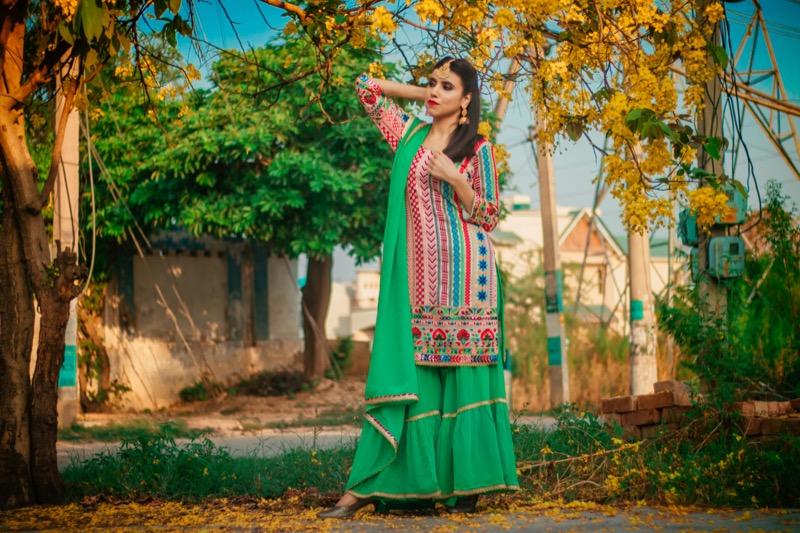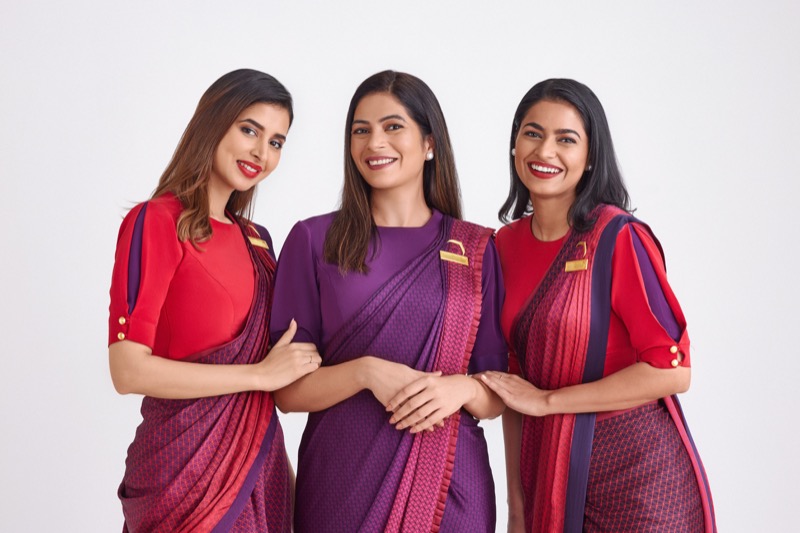Want to read in Dutch? Click here
When I speak about developments in workwear, I (often unconsciously) refer to Western culture. Here, we primarily focus on functionality and comfort. However, in other parts of the world, entirely different aspects play an important role. Take India, for example. Indian women’s workwear evolves differently than in the West. In this article, I explain what they value and how their local designers view this.

Cultural identity
A quick glance at Indian clothing styles reveals that the fabrics alone are different. At least, different from what people in the West wear. While many people here wear plain suits for business occasions, people in India generally dress more flamboyantly. The fabrics are more colorful, often featuring patterns and embellishments.
According to Indian fashion designer Gaurang Shah, this stems from the country’s history. The intricate weaves of traditional handwoven saris (see images below) are an important reflection of the culture. And that is exactly what is so important there: craftsmanship and culture. While workwear in the West is made with machines and primarily needs to be functional and uniform, India has remained true to its cultural identity.
Indian women’s workwear evolves differently than in the West
However, Sangeetha Velu, another fashion designer, sees that the West is increasingly influencing the business attire of Indian women. According to him, the traditional sari and salwar kameez (see photo below) are increasingly being replaced by the blouse and trousers. This is partly due to social changes and economic liberalization. More and more women are working and are inspired by both local and international fashion trends.
Initially, women tended to adopt the clothing style of men at work. This was mainly to project equality. But now, women use various trends to show their personality and professionalism.

Example of a salwar kameez | Photo: Dollar Gill – Unsplash According to Gaurang Shah, it is essential for women to adapt their workwear in modern times.
“Historically, both young and older women in different parts of India have played various roles, from running households to leading businesses, and our textiles have always reflected this diversity. Traditionally, saris symbolize grace, strength, and versatility, perfectly matching the multifaceted roles of Indian women. As women have ventured into different professions, our textiles have evolved over time. (…) This evolution reflects not only changing fashion trends but also the resilience and dynamism of Indian women in the workforce.”

Sharp contrasts
The new uniforms of Air India clearly show how the country combines traditional costumes with Western clothing styles. The pilots wear a classic, dark gray suit with gold buttons. This suit is worn by pilots worldwide but shows little of Indian culture. On the other hand, the contrast with the uniforms of the flight attendants could hardly be greater.

They have a piece of fabric draped around them in the traditional way. This is combined with the loose, thin trousers commonly seen in India. Meanwhile, there is also a blazer, which hardly stands out due to the perfect color combination.
I find it beautiful to see how women in India remain true to their culture while also drawing inspiration from other parts of the world.
What do you think of this development?
Best regards,
Aileen
